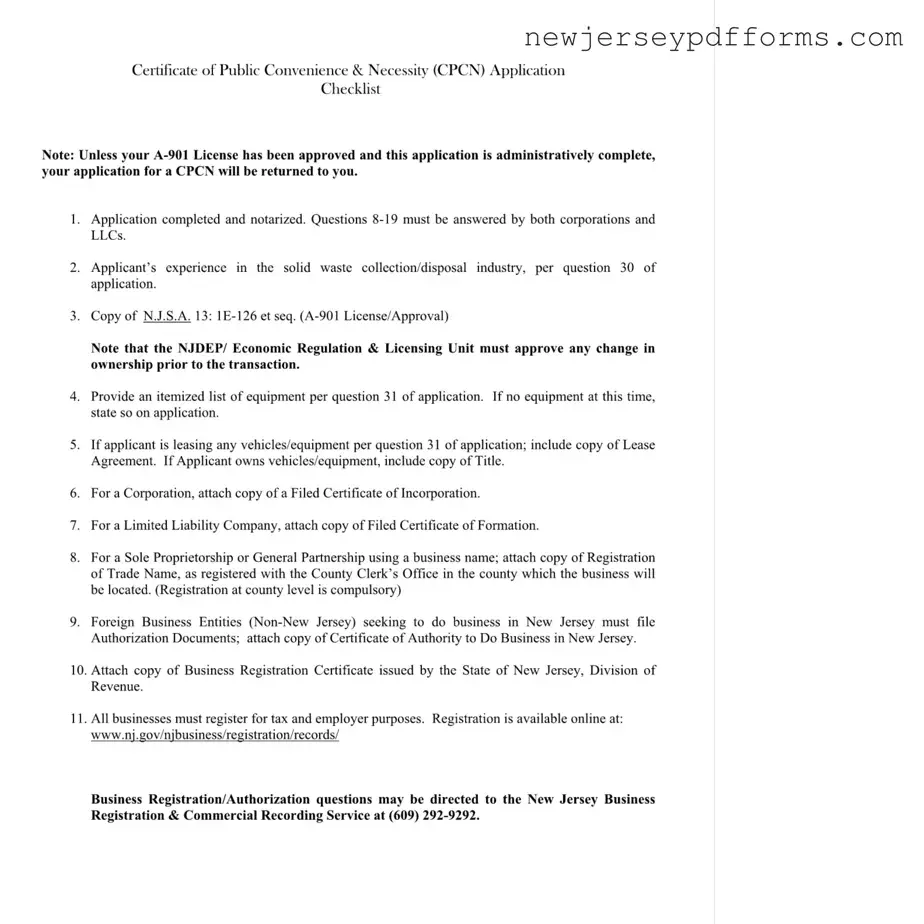What is the NJ CPCN form?
The NJ Certificate of Public Convenience and Necessity (CPCN) form is an application required for businesses involved in solid waste collection and disposal in New Jersey. This form ensures that applicants meet the necessary regulations and standards set by the New Jersey Department of Environmental Protection (NJDEP).
Who needs to complete the NJ CPCN form?
Any business entity seeking to operate in the solid waste collection or disposal industry in New Jersey must complete the NJ CPCN form. This includes corporations, limited liability companies (LLCs), sole proprietorships, and general partnerships.
What documents are required to submit with the NJ CPCN application?
Applicants must provide several documents, including a completed and notarized application, proof of experience in the industry, a copy of the A-901 License, and an itemized list of equipment. Additional documents may include lease agreements, business registration certificates, and proof of insurance, among others.
Is there a fee associated with the NJ CPCN application?
No payment should be included with the application. After the NJDEP processes the application, they will send a bill based on a $25 filing fee plus a portion of the estimated solid waste gross operating revenue for one year. Payment must be made upon approval of the application.
How long does it take to process the NJ CPCN application?
The processing time for the NJ CPCN application varies. Applications are handled in the order they are received, and the timeline can depend on the completeness of the application and the volume of applications being processed at the time.
What happens if my A-901 License is not approved?
If your A-901 License has not been approved, the NJ CPCN application will be returned to you. It is essential to ensure that the A-901 License is approved and that the application is complete before submission.
Can foreign business entities apply for a NJ CPCN?
Yes, foreign business entities can apply for a NJ CPCN. However, they must file Authorization Documents and provide a copy of the Certificate of Authority to Do Business in New Jersey along with their application.
What should I do if I have questions about the application process?
If you have questions about the NJ CPCN application process, you can contact Mike DeTalvo at (609) 984-6825 or Suzanne Conway at (609) 633-1389 for assistance.
Where do I send my completed NJ CPCN application?
Completed applications should be mailed to the following address: New Jersey Department of Environmental Protection, Environmental Management, Economic Regulation & Licensing, 401 East State Street, 2nd Floor, Mail Code 401-02C, Trenton, NJ 08625-0420.

